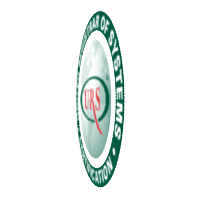ISO 9001:2015 Transition Training
Date : 21-22/4/2017 ( Friday & Saturday)
Fees : 1000 EGP
Deliverable : coffee break, lunch, Material & Certificate from URS
Bussines Development Manager
M: +201066277727
E: ahmedmahrous@ursegypt.com
This course is intended for auditors (external and internal auditors). It will cover the specific differences between the ISO 9001:2008 requirements and ISO 9001:2015 requirements from an auditor’s perspective. This course will emphasize the concepts that will be difficult to audit including new requirements that are less prescriptive, including for example; not requiring procedures and records, risk based thinking, knowledge management, and many others.
Who Should Attend:
This course is intended for auditors who are auditing ISO 9001:2008 and will be auditing ISO 9001:2015. Additionally, others who will receive value from this course include:
- Personnel that need to implement and manage an audit program
- Personnel that need to understand the changes between ISO 9001:2008 and ISO 9001:2015
- Personnel that need to understand the evidence based approach that is needed to audit ISO 9001:2015
-
Recommended attendees include:
- Management
- Quality Personnel
- Certification Body Auditors
- Internal auditors
- Supplier Auditors
- Management Representatives
- Audit Program Managers
What you will learn when you take this class (Course Objectives)
· The differences between ISO 9001:2008 and ISO 9001:2015 and how this will impact existing approaches to auditing
· The alignment requirements between the Quality Management System and the business objectives of the organization and how this impacts the role of auditors in auditing an organizations business processes and business results
· Requirements for documented information and how this impacts the audit process including the identification of audit evidence
· How to audit those requirements in ISO 9001:2015 that are less prescriptive, where audit evidence may be more difficult to obtain
· Methodologies for auditing the new requirement for Risk Management (Risk Based Thinking).
· Methodologies for auditing the new requirement for Organizational Knowledge
Questions that will be answered:
· There are no requirements for Procedures, Records or Quality Manual, so how will this change what gets audited and how audits are conducted
· How will these changes impact an organization’s internal audit program?
· How do auditors prepare for and conduct audits to ISO 9001:2015?
Learning Outcomes:
1. Given ISO 9001:2008 and ISO 9001:2015, identify the differences between the two standards
2. Given ISO 9001:2008 and ISO 9001:2015, identify the clause alignment between the two standards
3. Given ISO 9001:2015 and an audit scenario, Identify and write specific nonconformities
4. Identify the Implications of the removal of the requirements for procedures and records
5. Identify the specific requirements and appropriate Evidence that are associated with the increased focus on process management
6. List the alternatives to documents and records that are acceptable for an auditor when determining the adequacy of Audit Evidence



